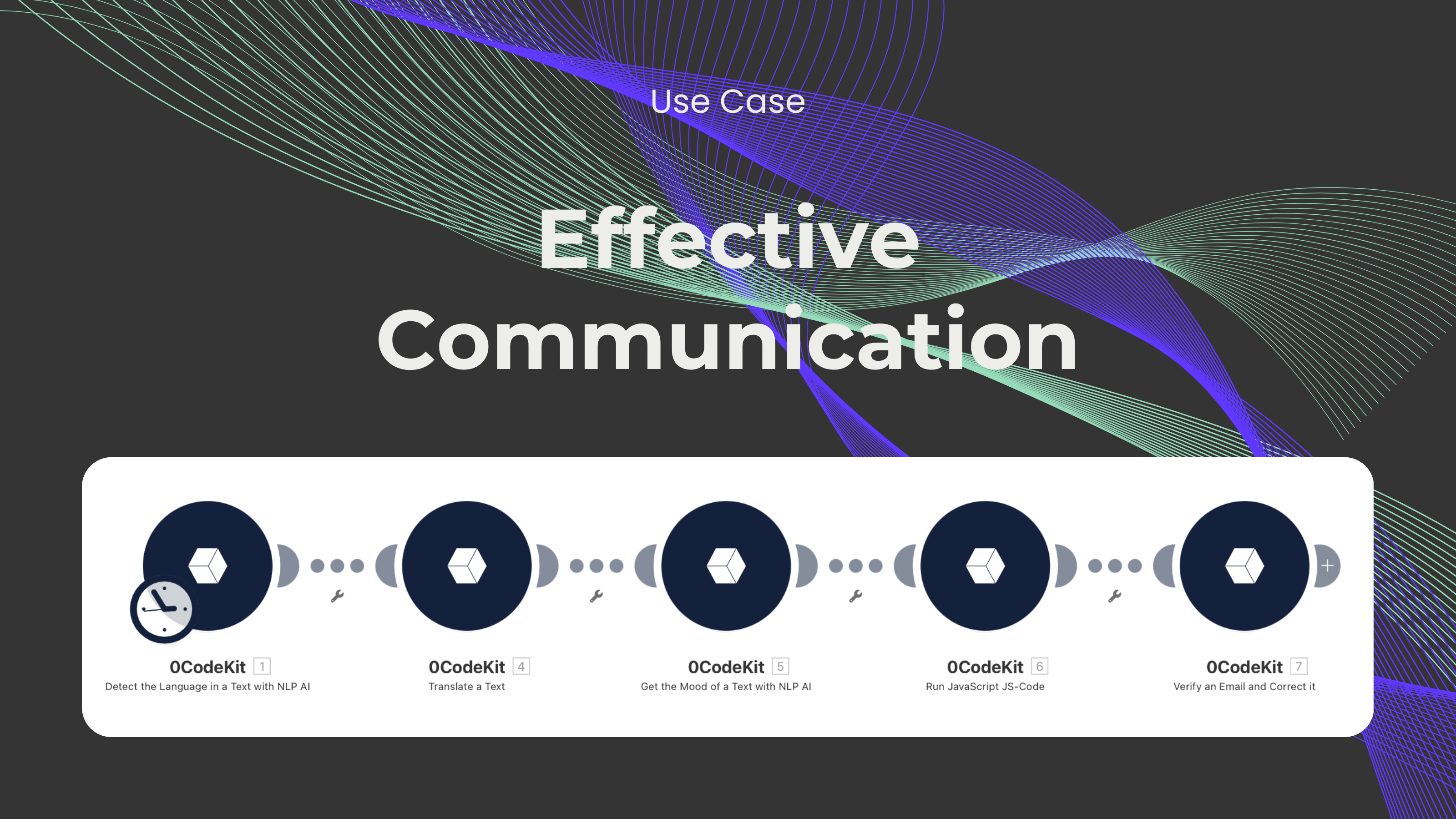All posts
5 Endpoints for Healthcare
This blog highlights the potential of digitalisation and automation in transforming healthcare, featuring five 0CodeKit endpoints: 'Calculate BMI', 'Extract contact information', 'Generate a chart', 'Detect text in an image', and Encrypt plaintext'.
JavaScript Optimisation Automation
This blog highlights how 0CodeKit enhances JavaScript application performance through automation, tackling the challenge of resource-intensive calculations. By optimising complex computational tasks, 0CodeKit improves efficiency and responsiveness.
JavaScript API Call Opimisation
This blog delves into JavaScript API calls and how they enhance user experience by facilitating data exchange and interactions without full-page reloads. It discusses features like HTTP methods, async operations, JSON data format, and authentication.
E-Invoicing with Factur-X and ZUGFerD
This blog discusses the increasing adoption of e-invoicing in Europe following the EU Directive 2014/55/EU. With e-invoicing becoming mandatory by 2026, 0CodeKit introduces features for validating and embedding invoices compliant with the ZUGFerD/Factur-X standards.
7 Endpoints for Finance
This blog outlines 7 API endpoints that enhance efficiency and security in the finance industry. These endpoints include IBAN and BIC validation, currency conversion, VAT rate lookup and validation, phone number validation, and plaintext encryption.
11 New PDF Endpoints
This blog announces 11 new and 2 optimised PDF endpoints designed to enhance document processing, including drawing text and images, adding/removing pages, rotating/resizing pages, metadata, encrypting/decrypting PDFs, and creating empty PDFs.
Crypto Endpoints
This blog introduces three crypto-related endpoints from 0CodeKit: Encrypt, Decrypt, and Hash. These endpoints enhance security by encrypting sensitive information, decrypting for authorised access, and verifying data integrity through hashing.
AI, Business, Code, Image & PDF Endpoints
This blog is the first in a series exploring endpoints across 5 categories: AI, Business, Code, Image, and PDF. From text and content recognition in AI, email and VAT validation in Business, code execution in Code, image processing in Image, to PDF manipulations.
DeepL vs. 0CodeKit
This blog compares DeepL, a leading language translation platform, and 0CodeKit, a versatile API with translation capabilities among its 140 functionalities. Both services have free and various paid plans, catering to different user needs and scales of operation.
The Value Behind the Cost
This blog explains 0CodeKit's pricing structure, shaped by computational and third-party service costs, required for its over 140 endpoints. Computational demands on high-quality servers and reliance on third-party services like Azure for AI functions contribute to costs.
Google Docs Entity Extraction Automation
This blog details setting up automation for data extraction from Google Drive documents using 0CodeKit's 'Text entity detection'. By enabling quick and accurate data extraction, this process enhances decision-making, information retrieval, and business intelligence.
Edge Computing
This blog explores edge computing, emphasising its role in real-time data processing for AI, smart devices, and IoT by decentralising processing. This proximity reduces latency, enhances performance, minimises internet strain, and improves data security.
Endpoint Usage Data on 0CodeKit
This blog highlights the importance of endpoint management on 0CodeKit's platform. Effective control of endpoint usage enhances performance and cost-efficiency. By utilising the usage table and data visualisation, users can monitor credit consumption.
Competitor Ads Tracking Automation
This blog discusses an automated approach to analysing competitors' ads using a Make scenario. By leveraging Google Sheets, 0CodeKit's HTML or URL to PDF endpoint, and Google Drive, users can compile comprehensive reports of competitors' ads efficiently.
Canva vs. 0CodeKit
This blog compares Canva and 0CodeKit, both of which offer powerful image editing features. Canva has revolutionised digital design with its user-friendly platform, while 0CodeKit provides 13 image editing endpoints that integrate with other platforms.
.png)

